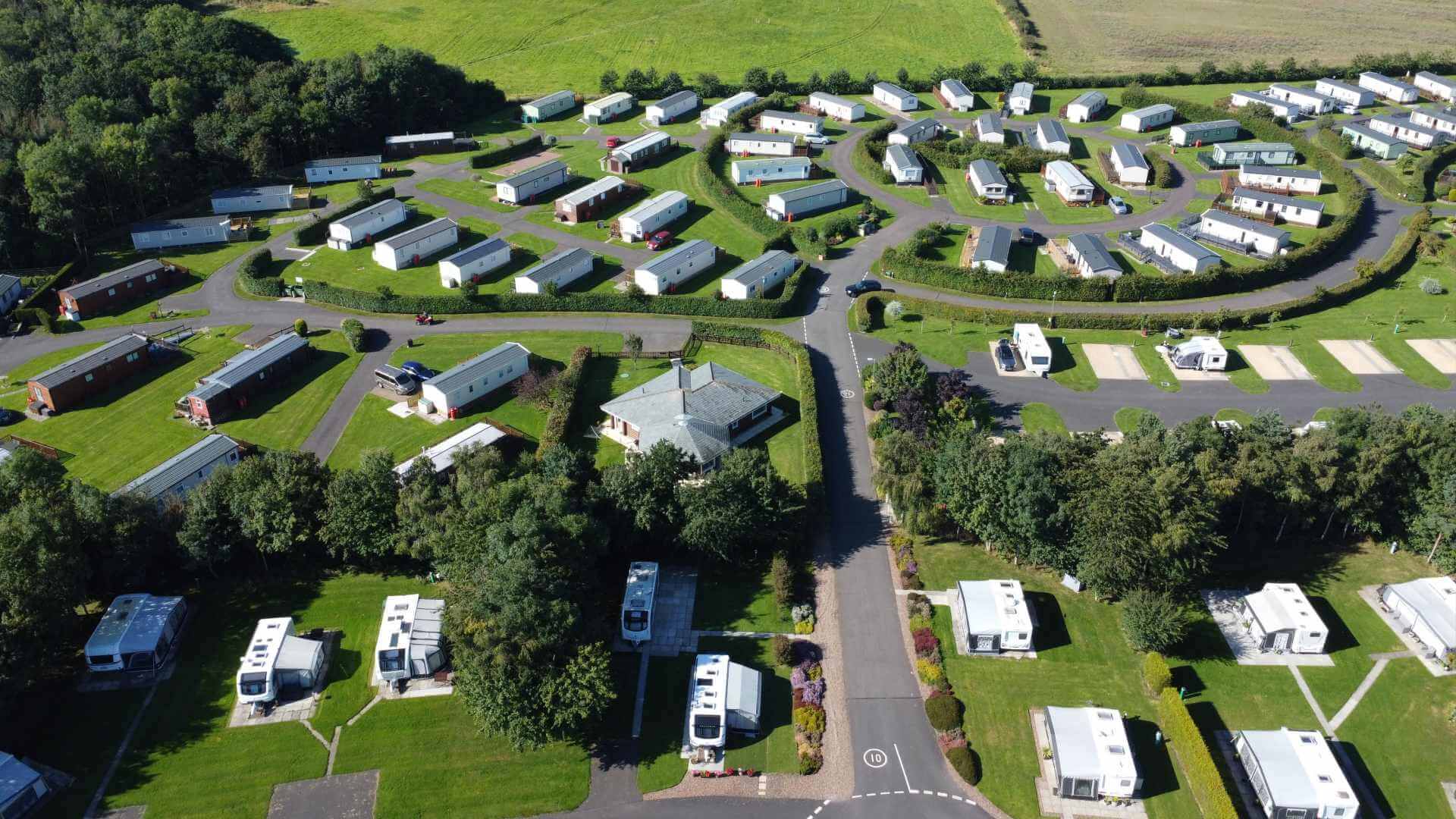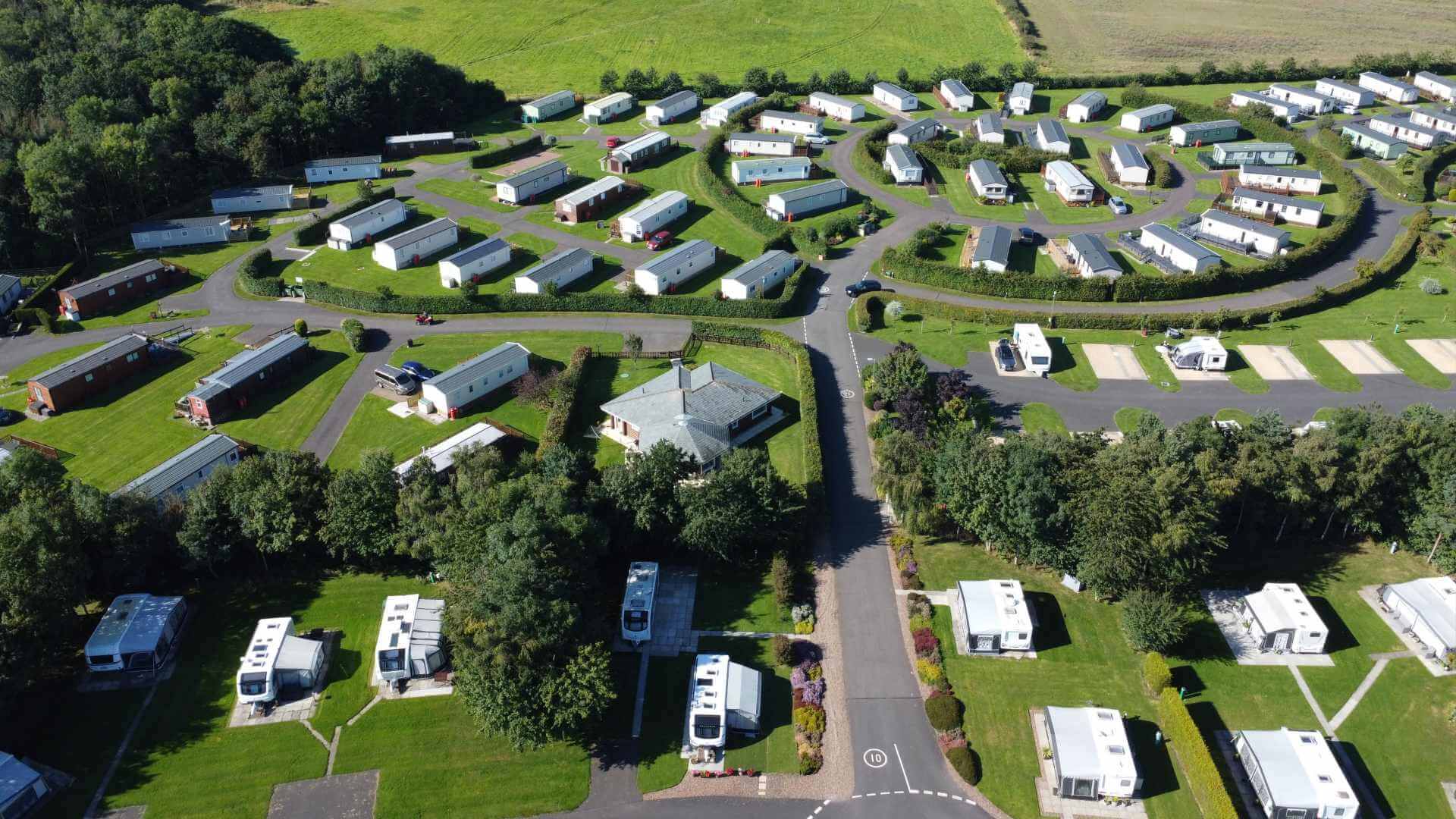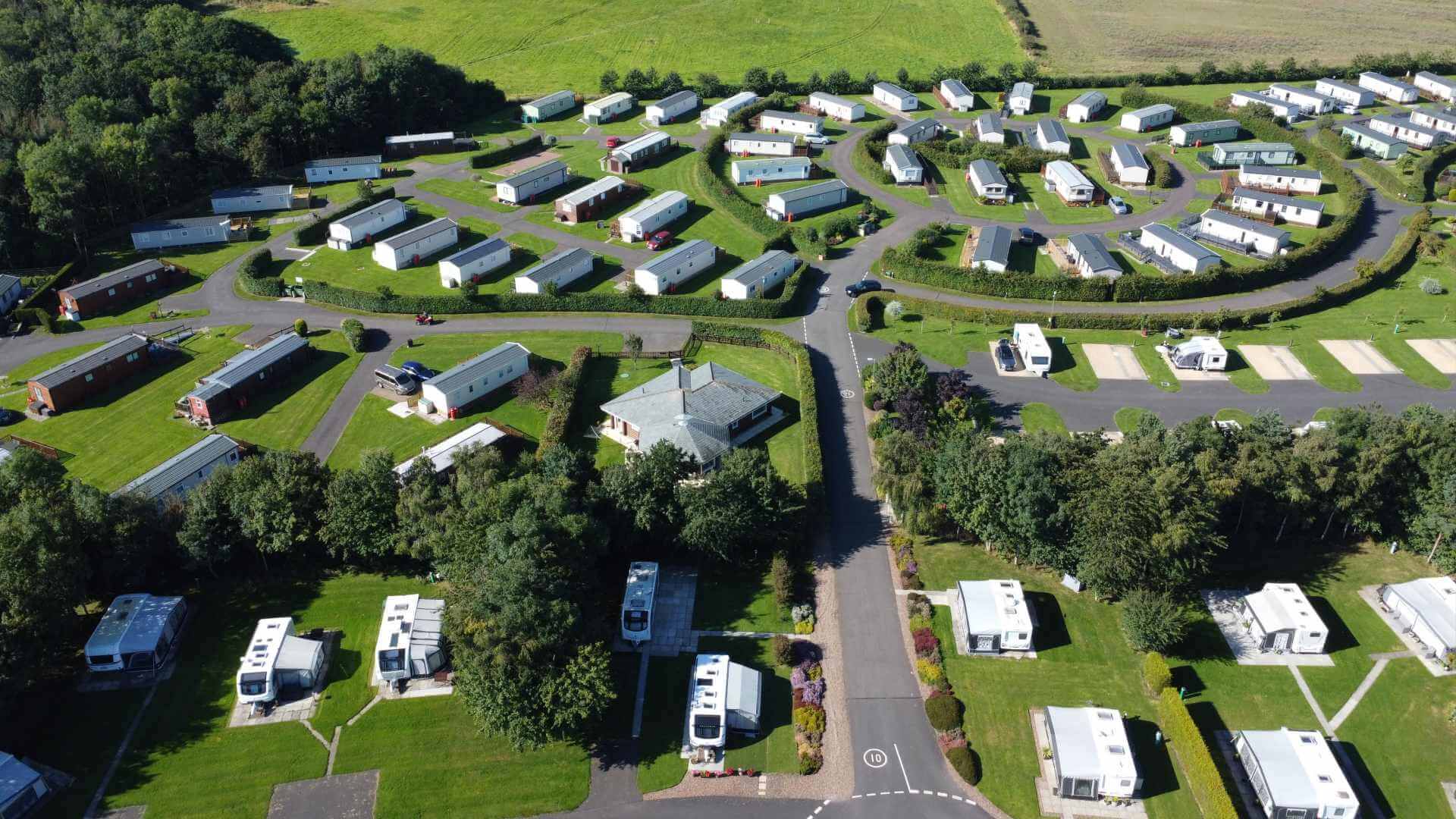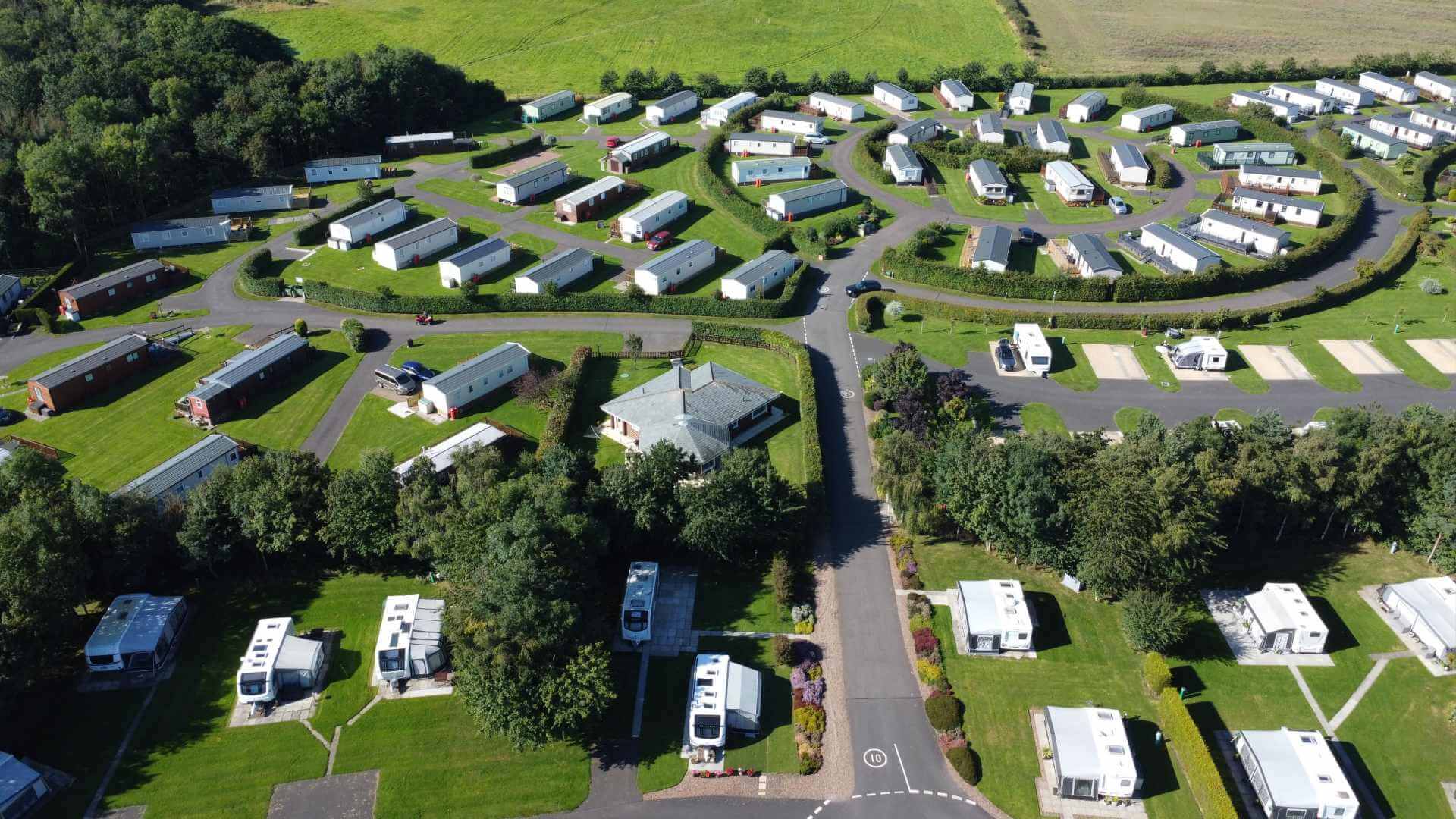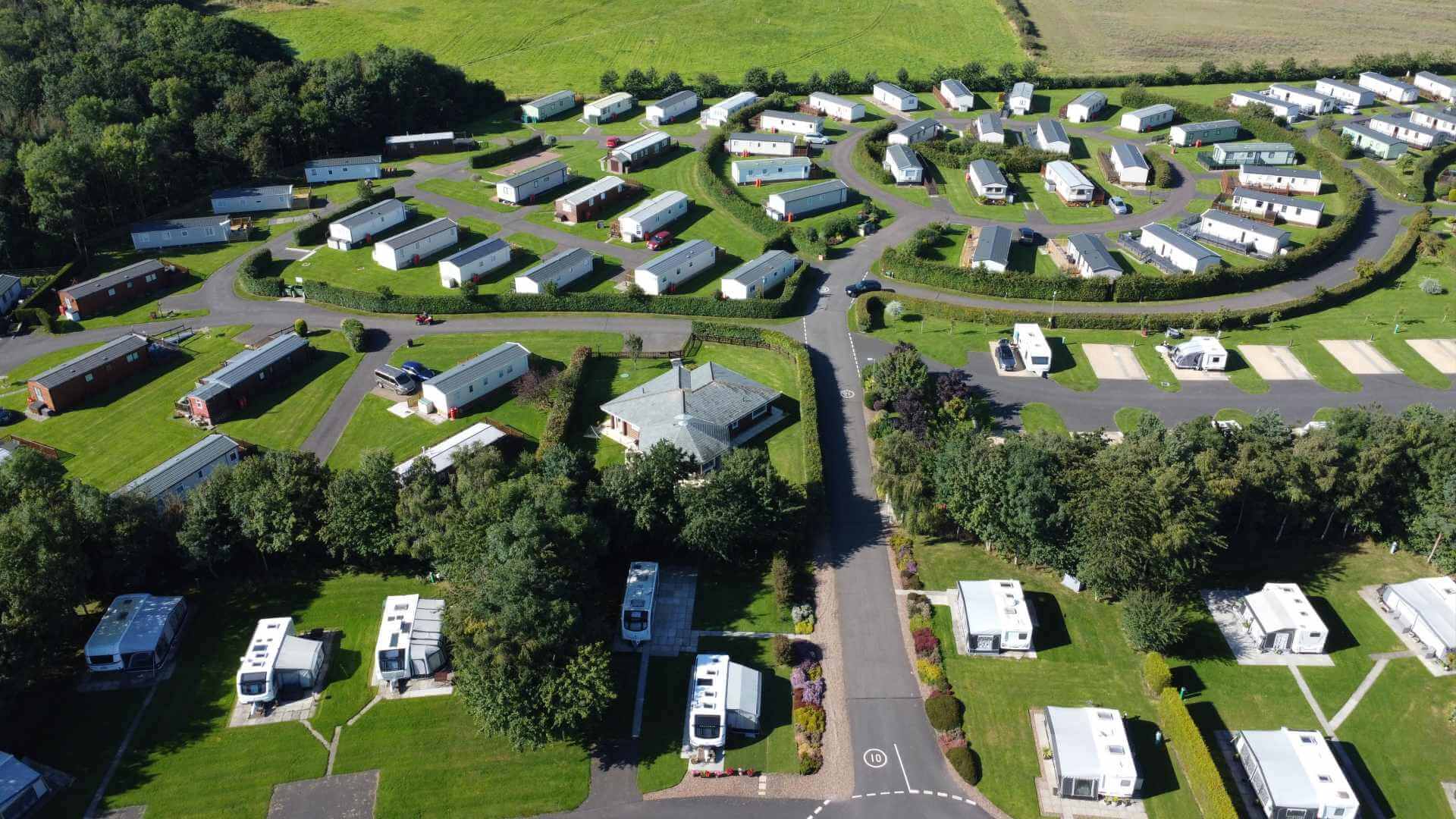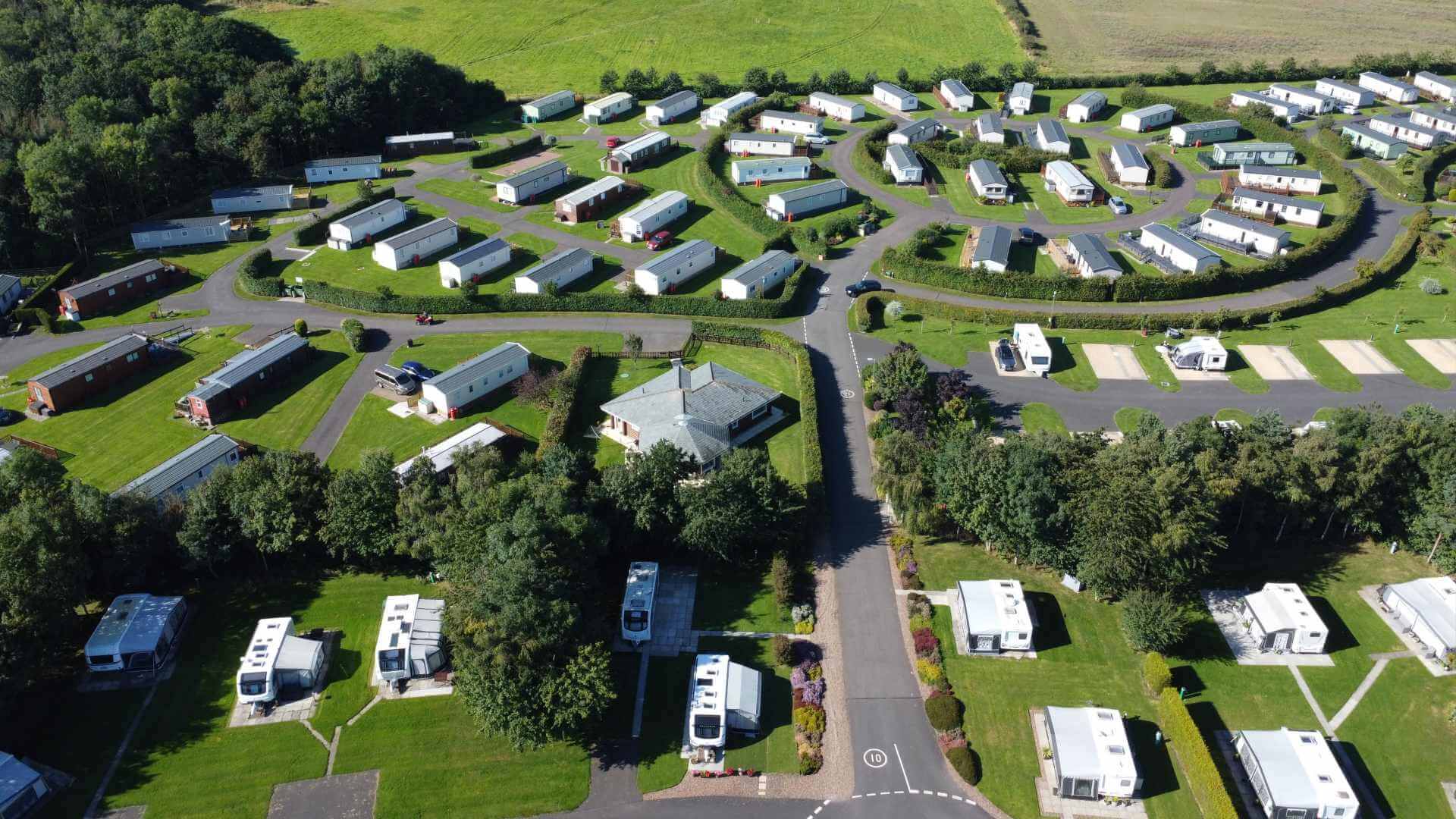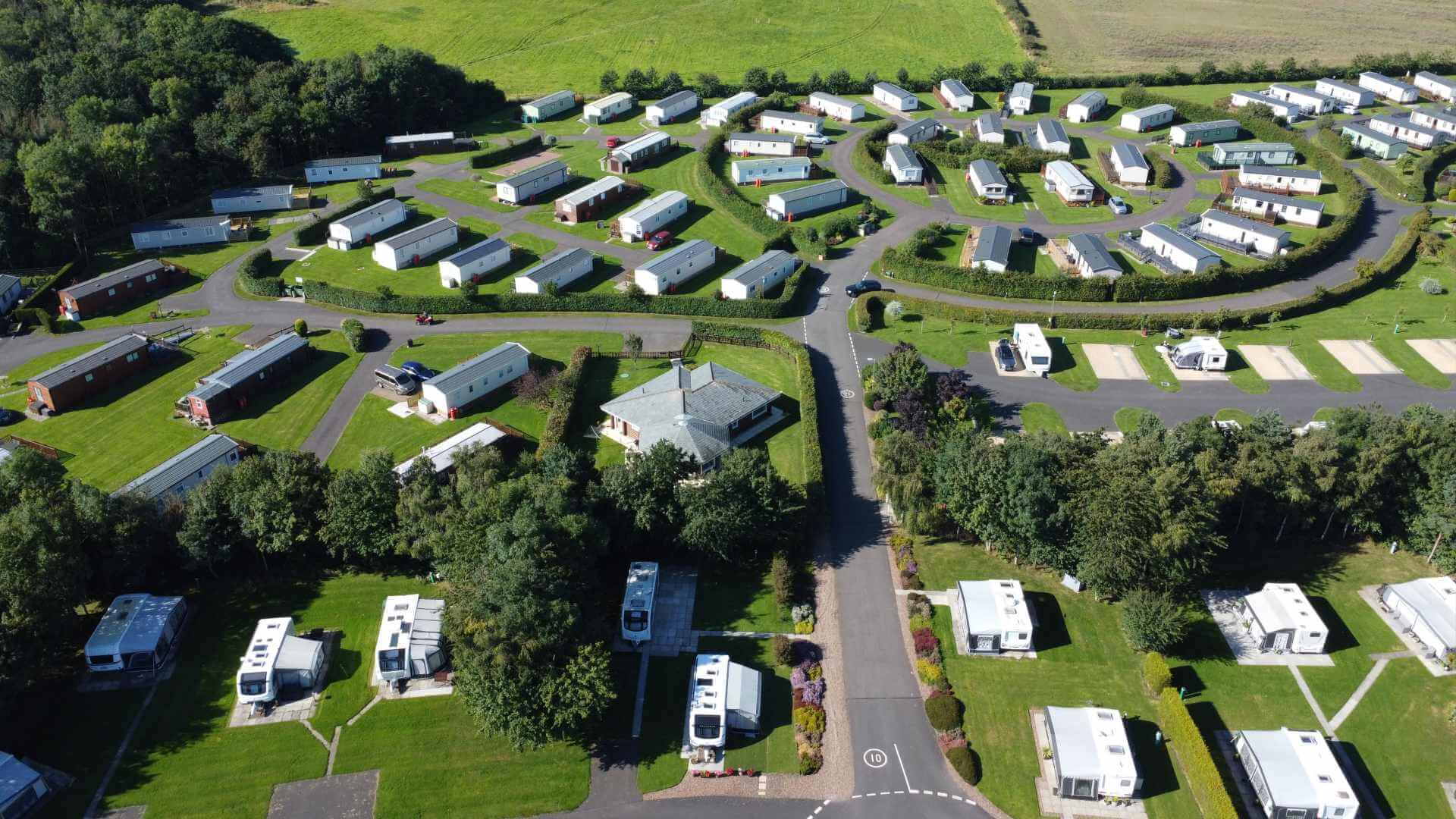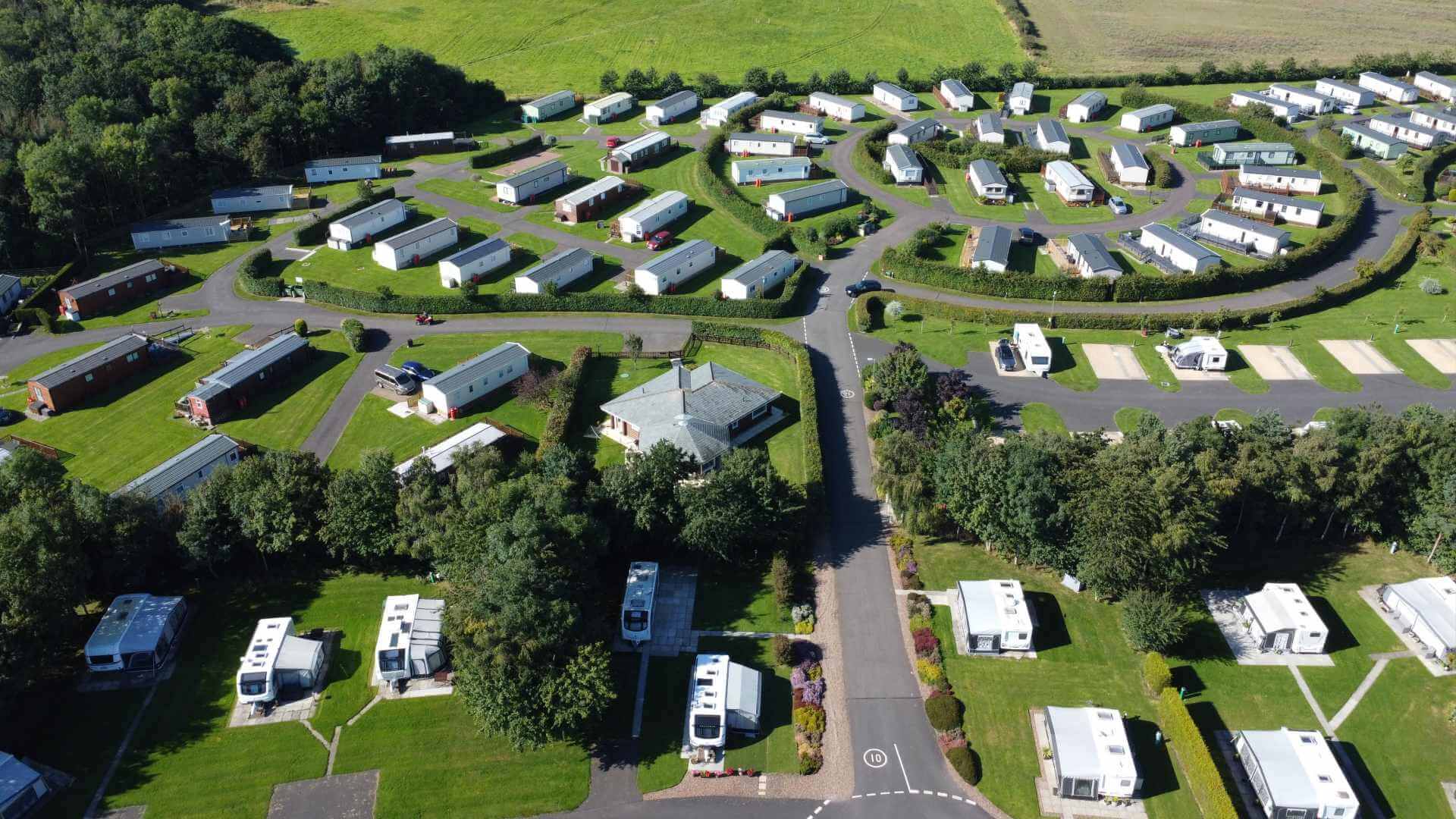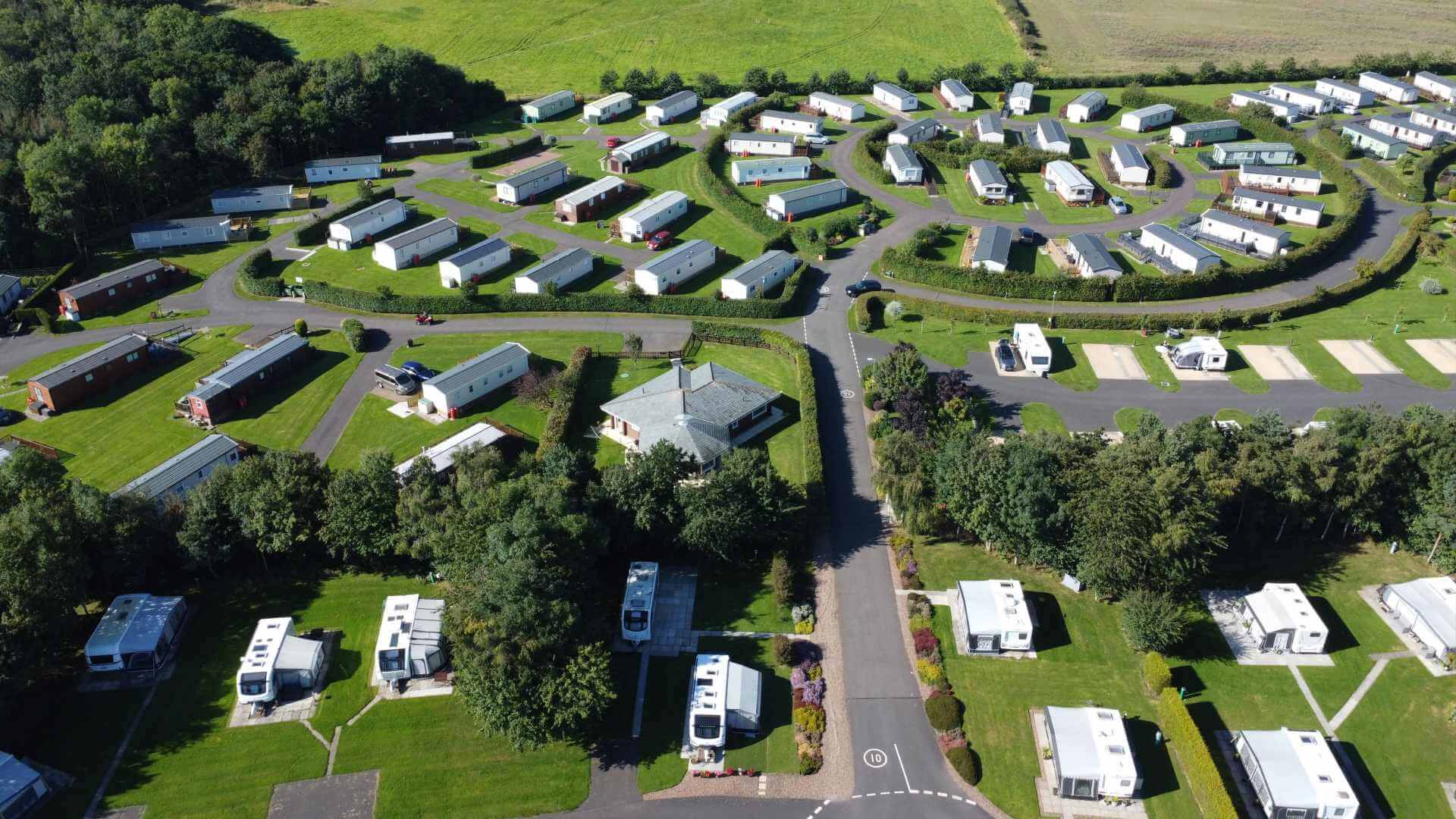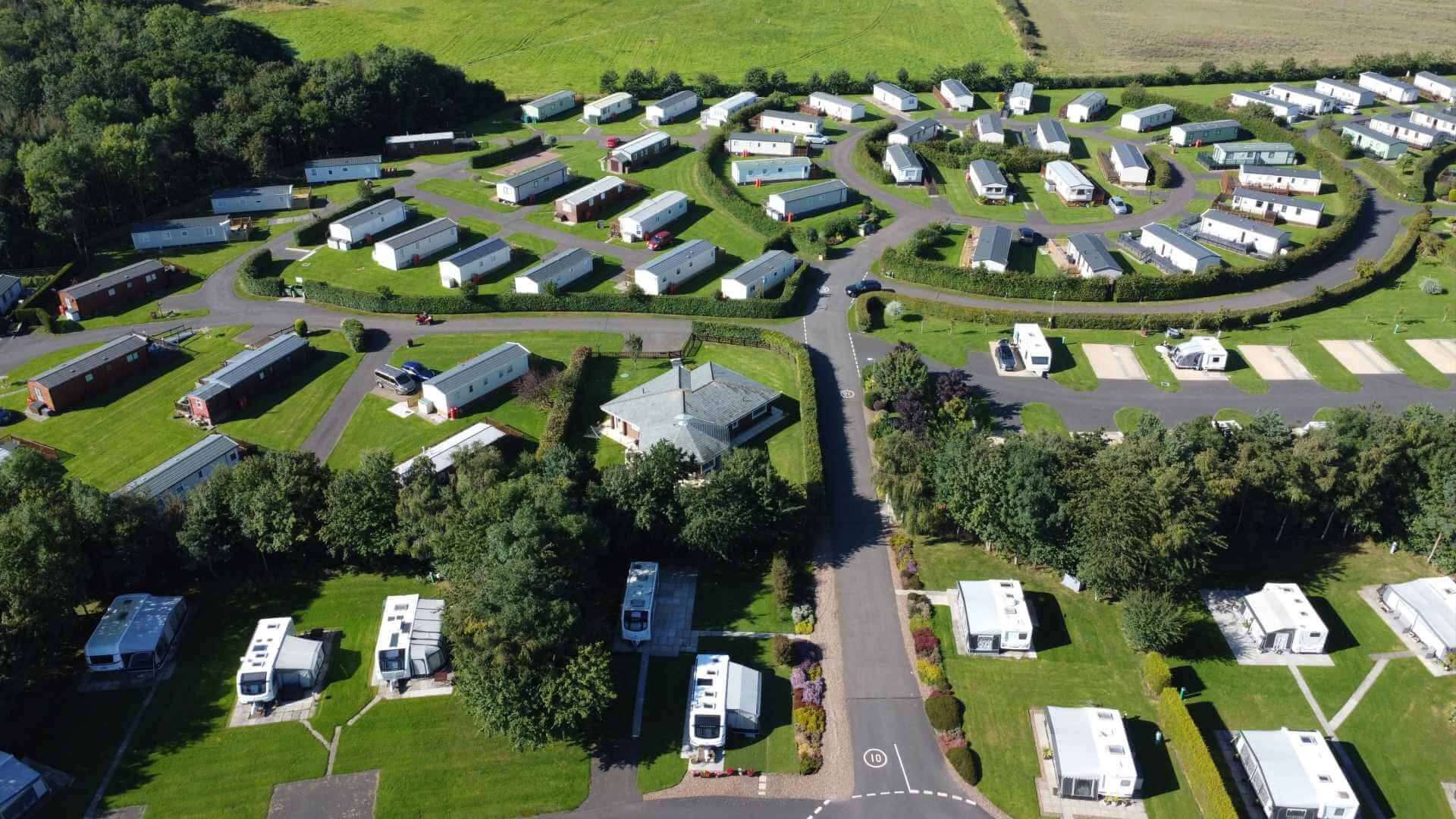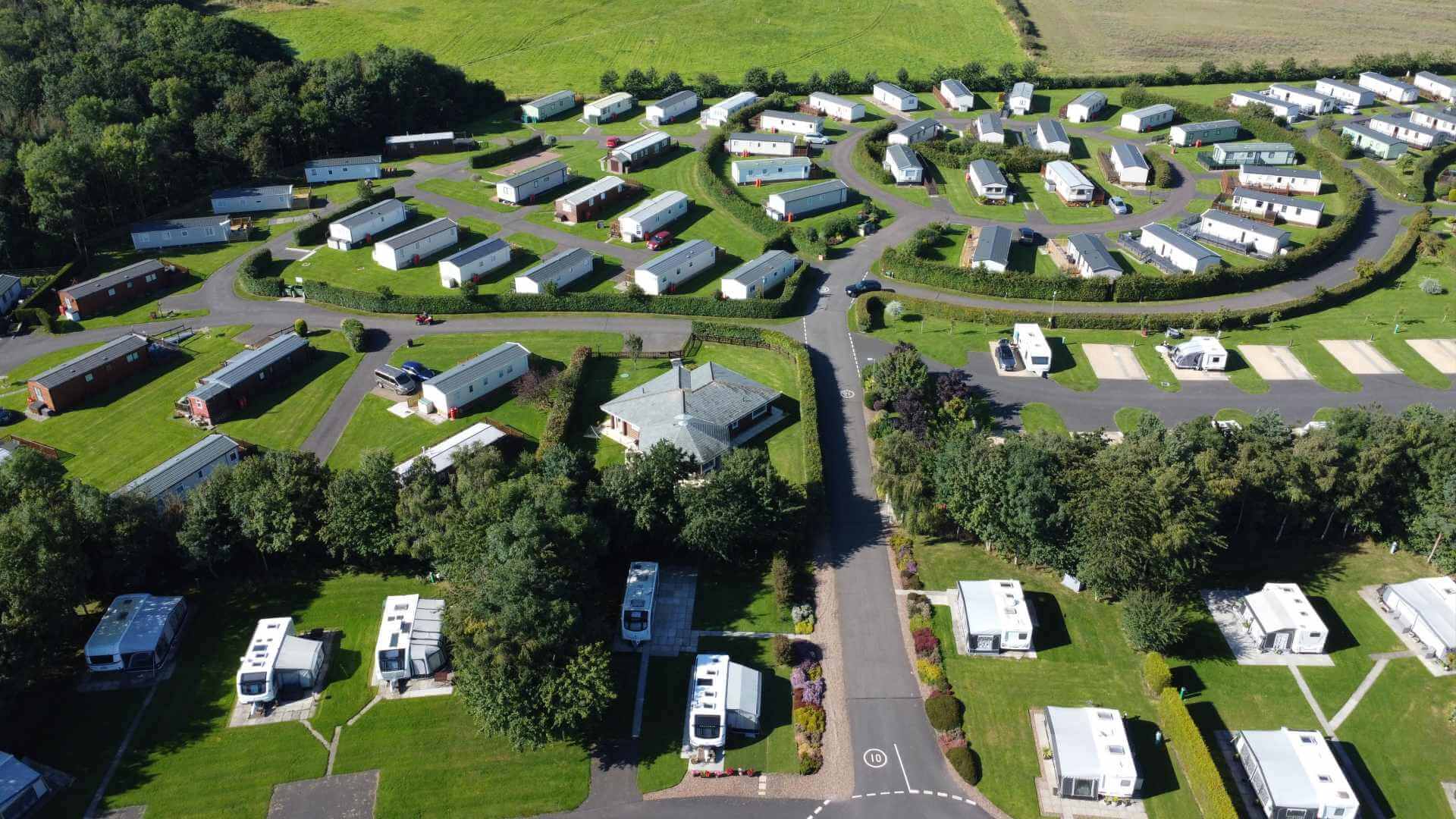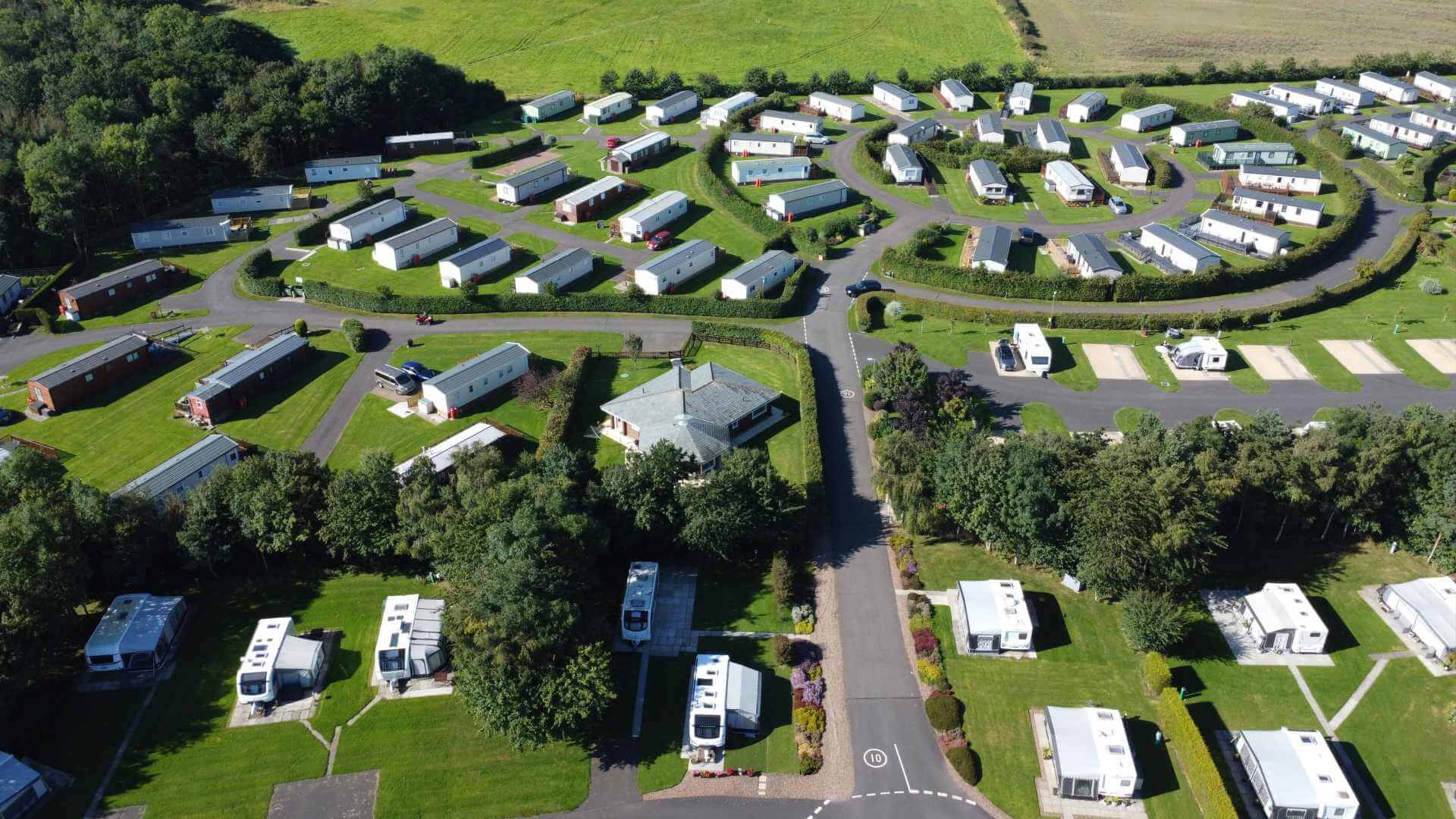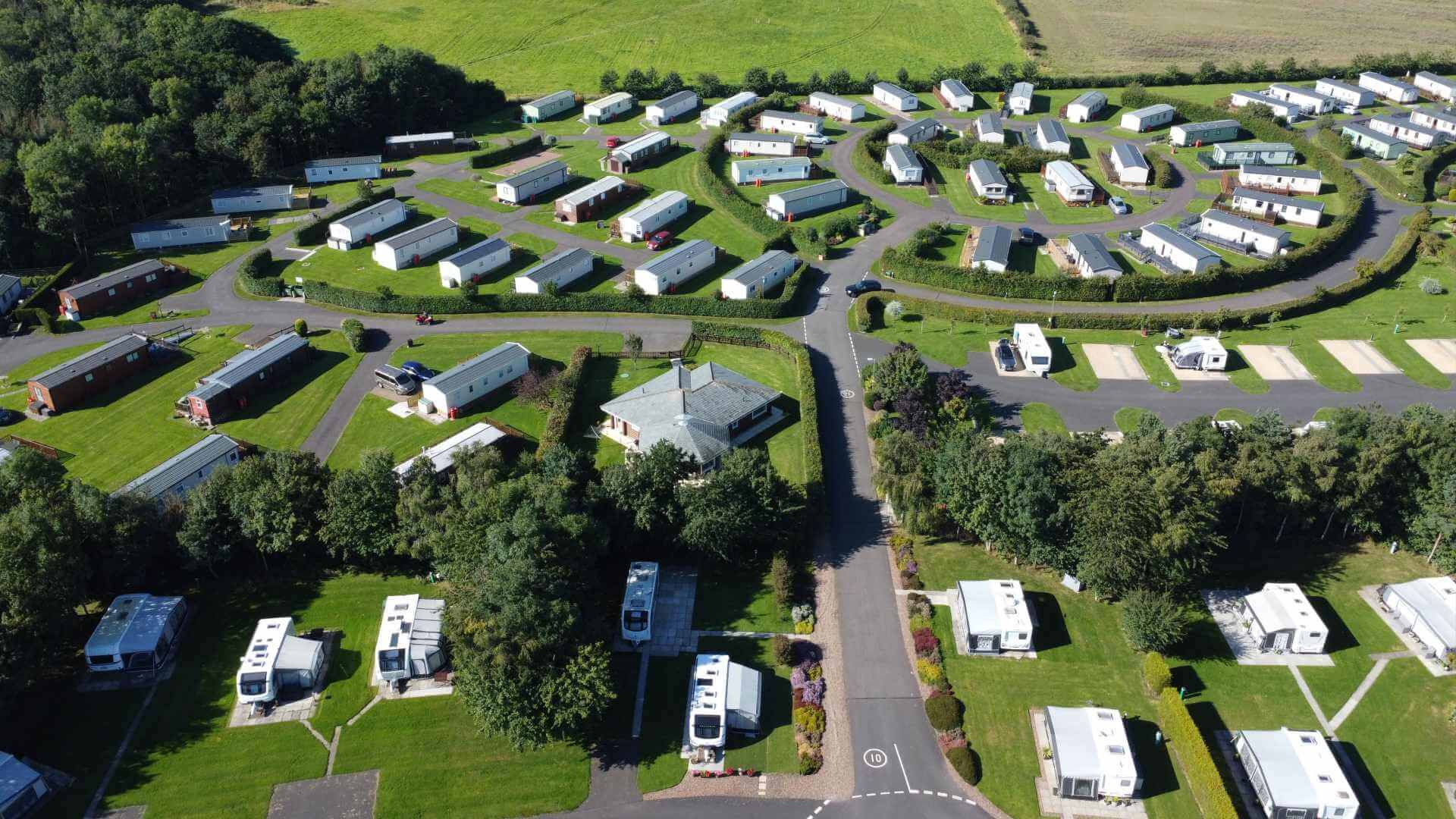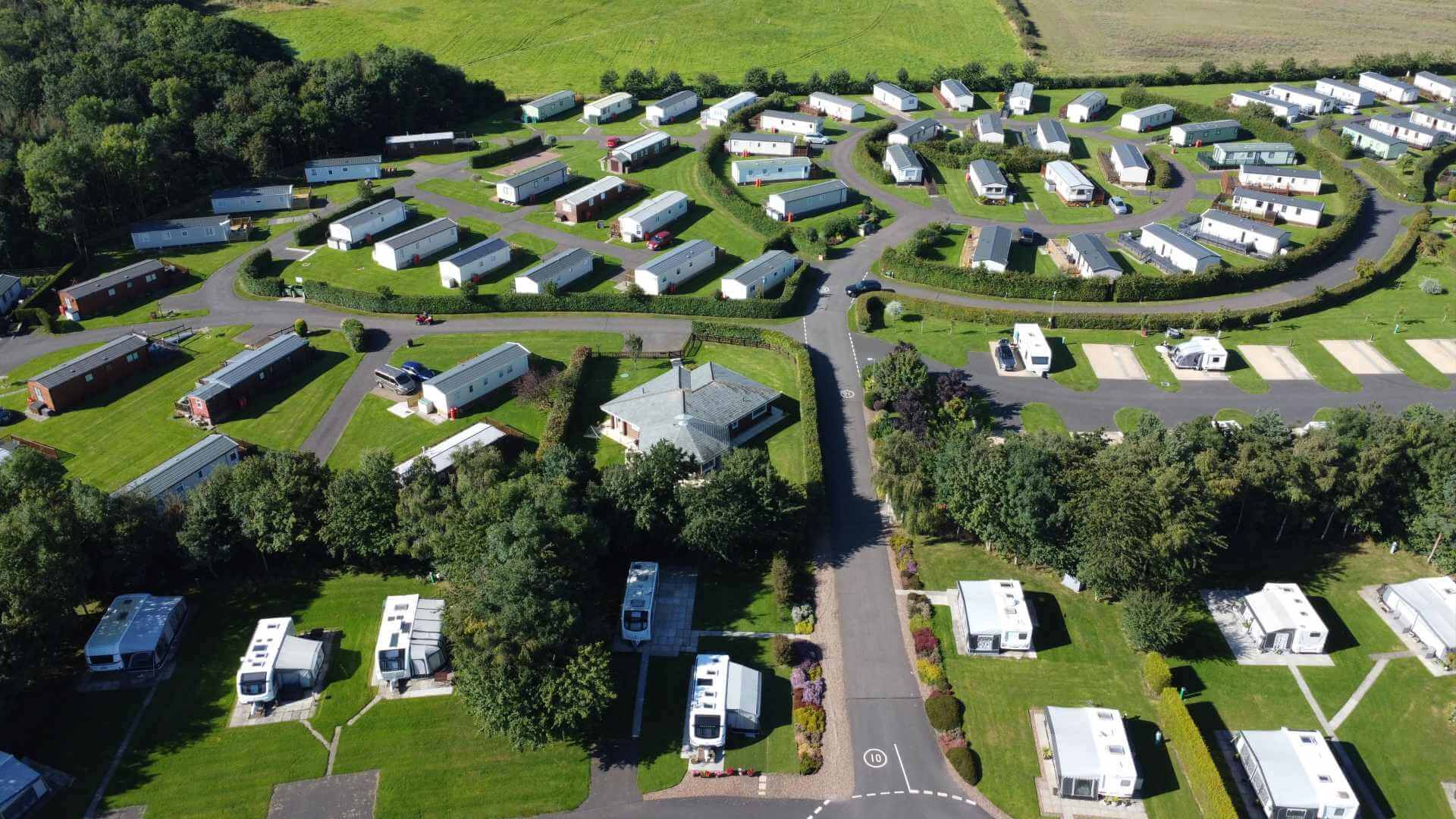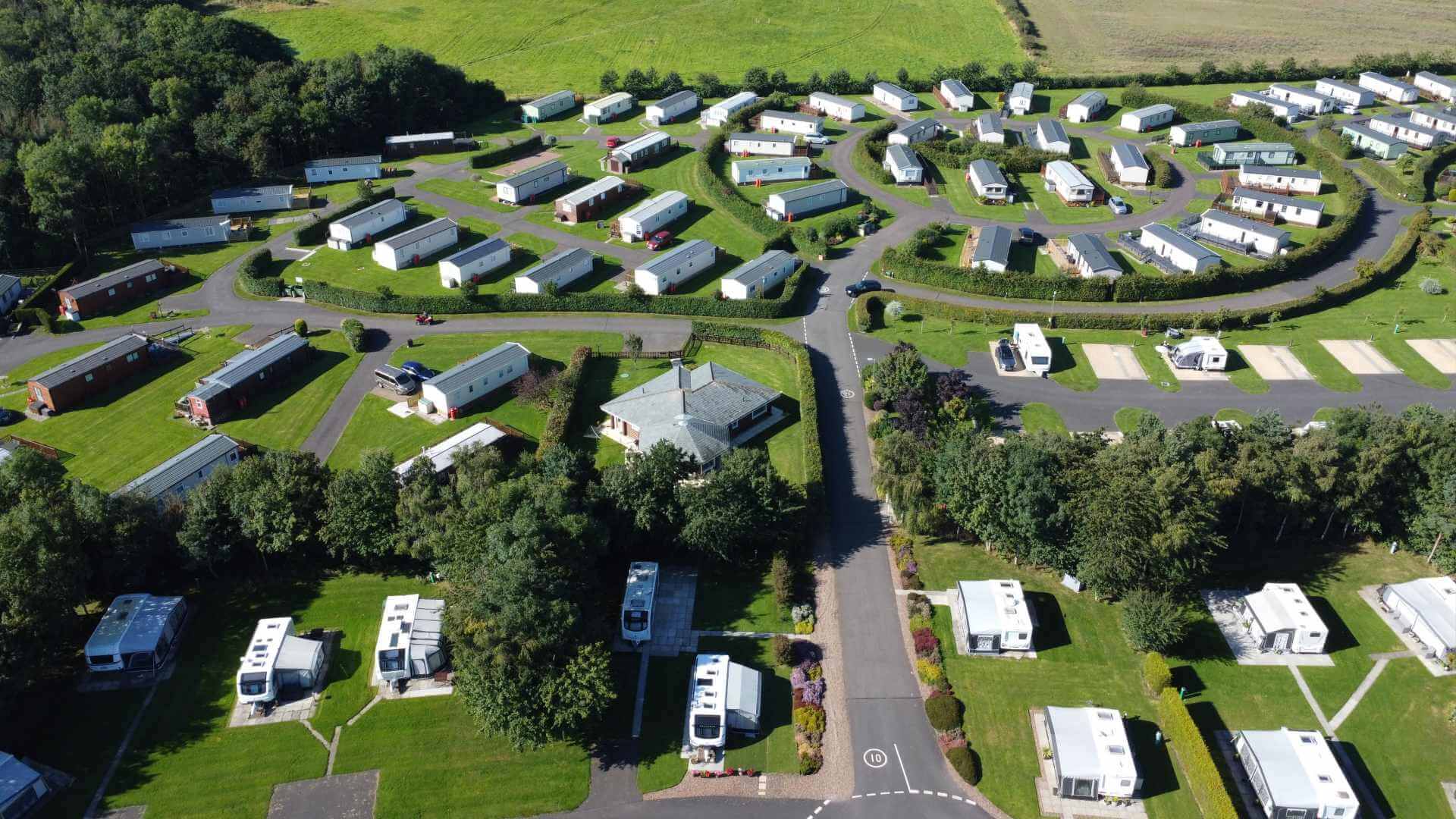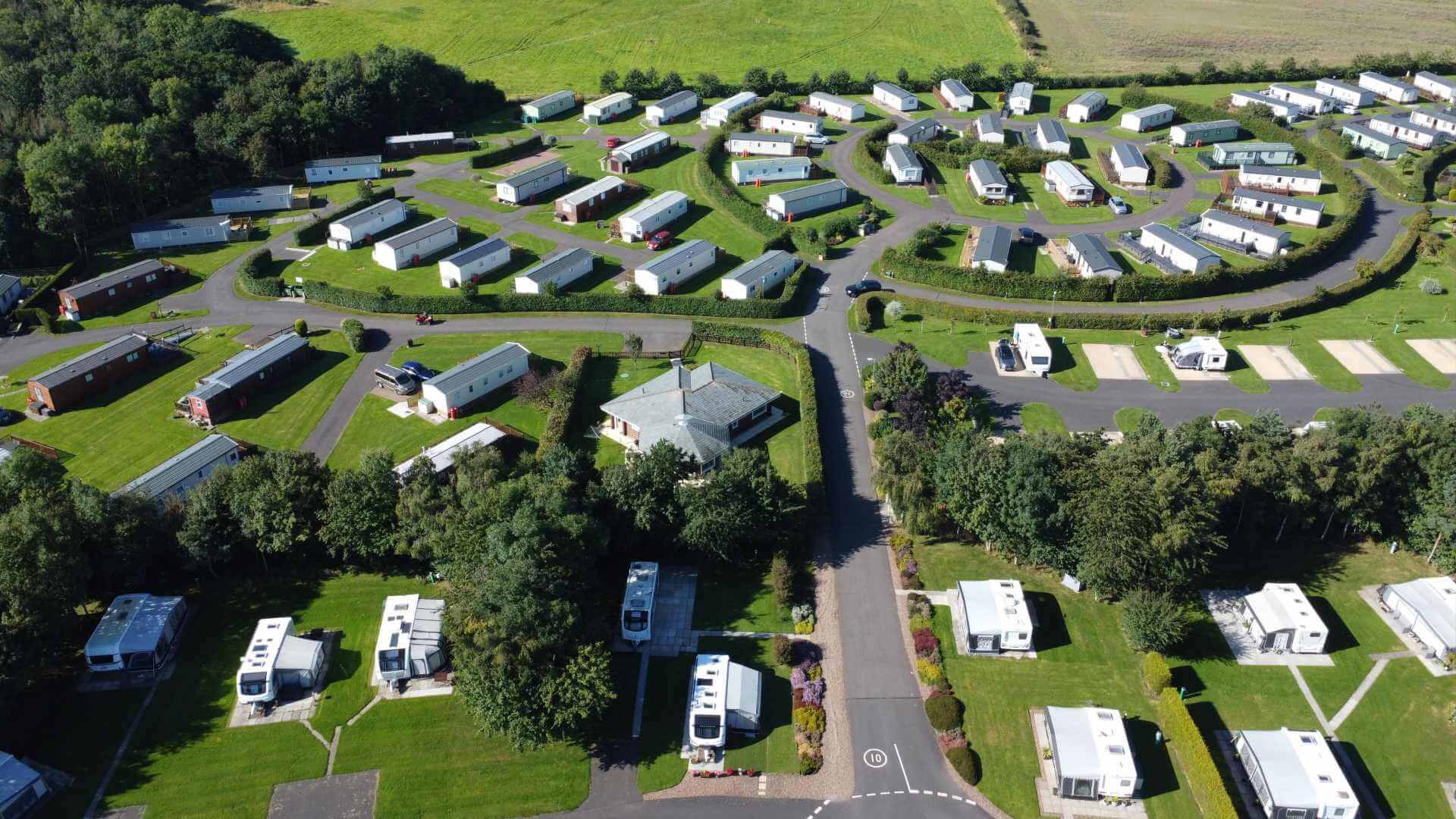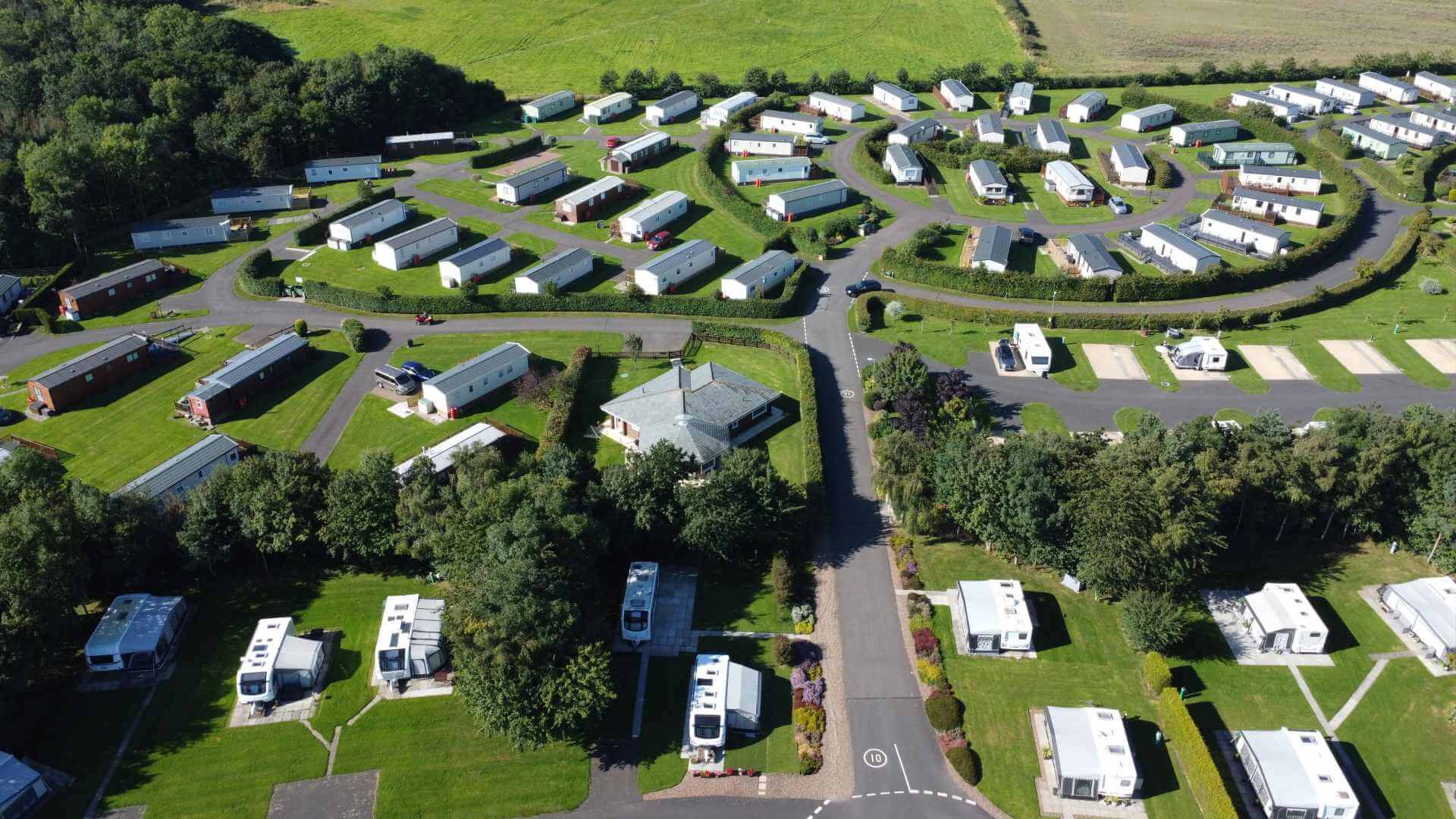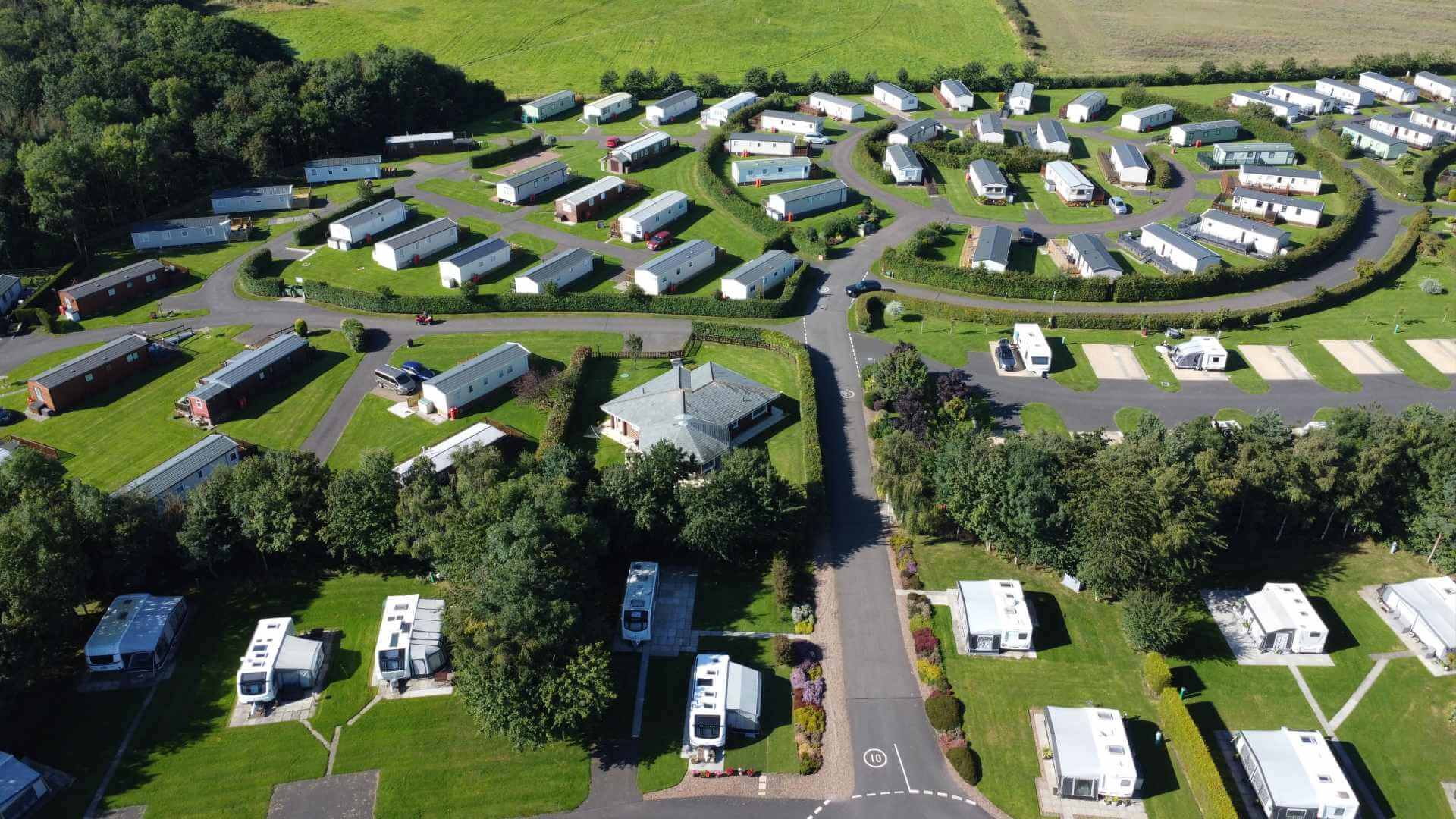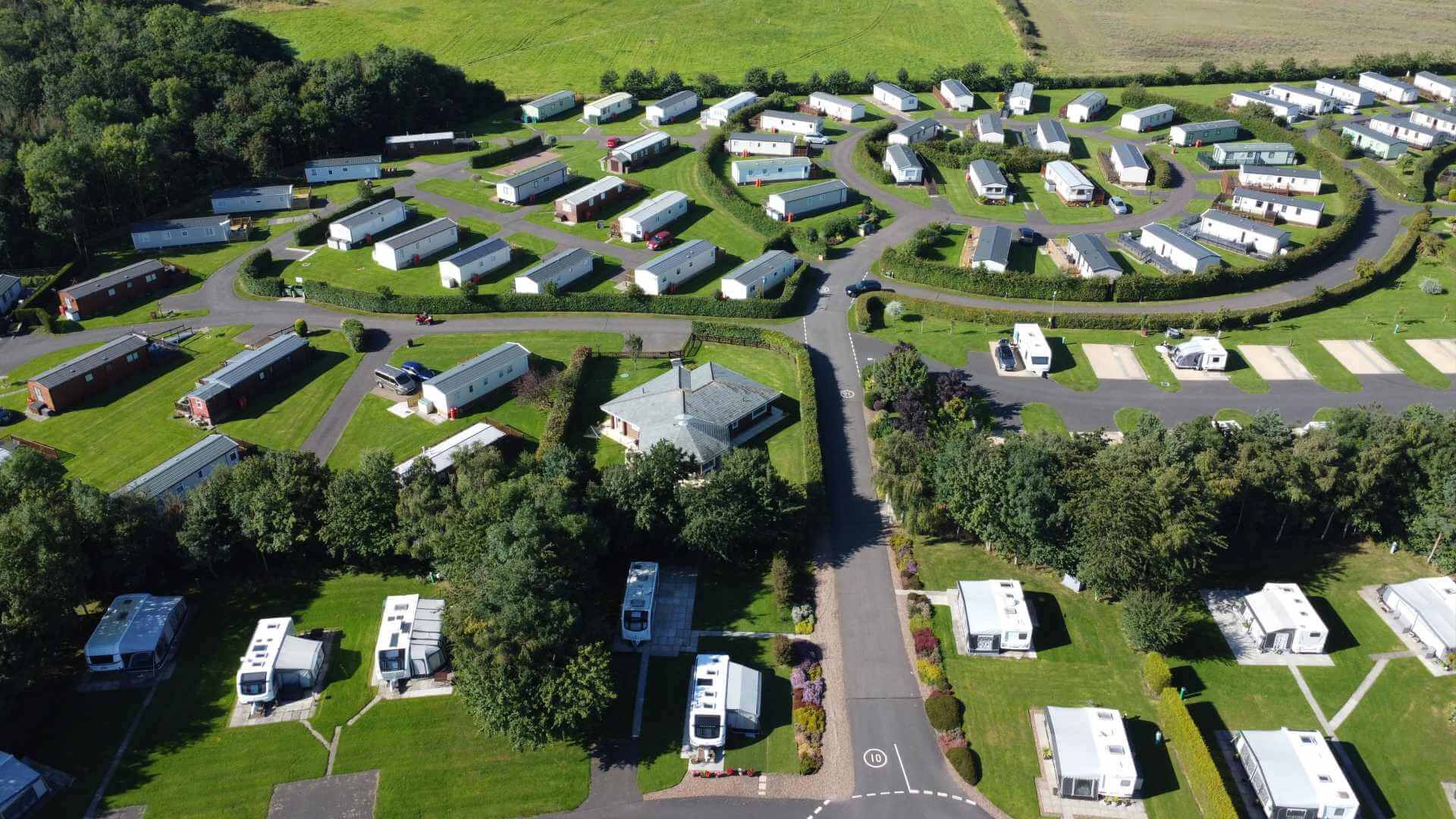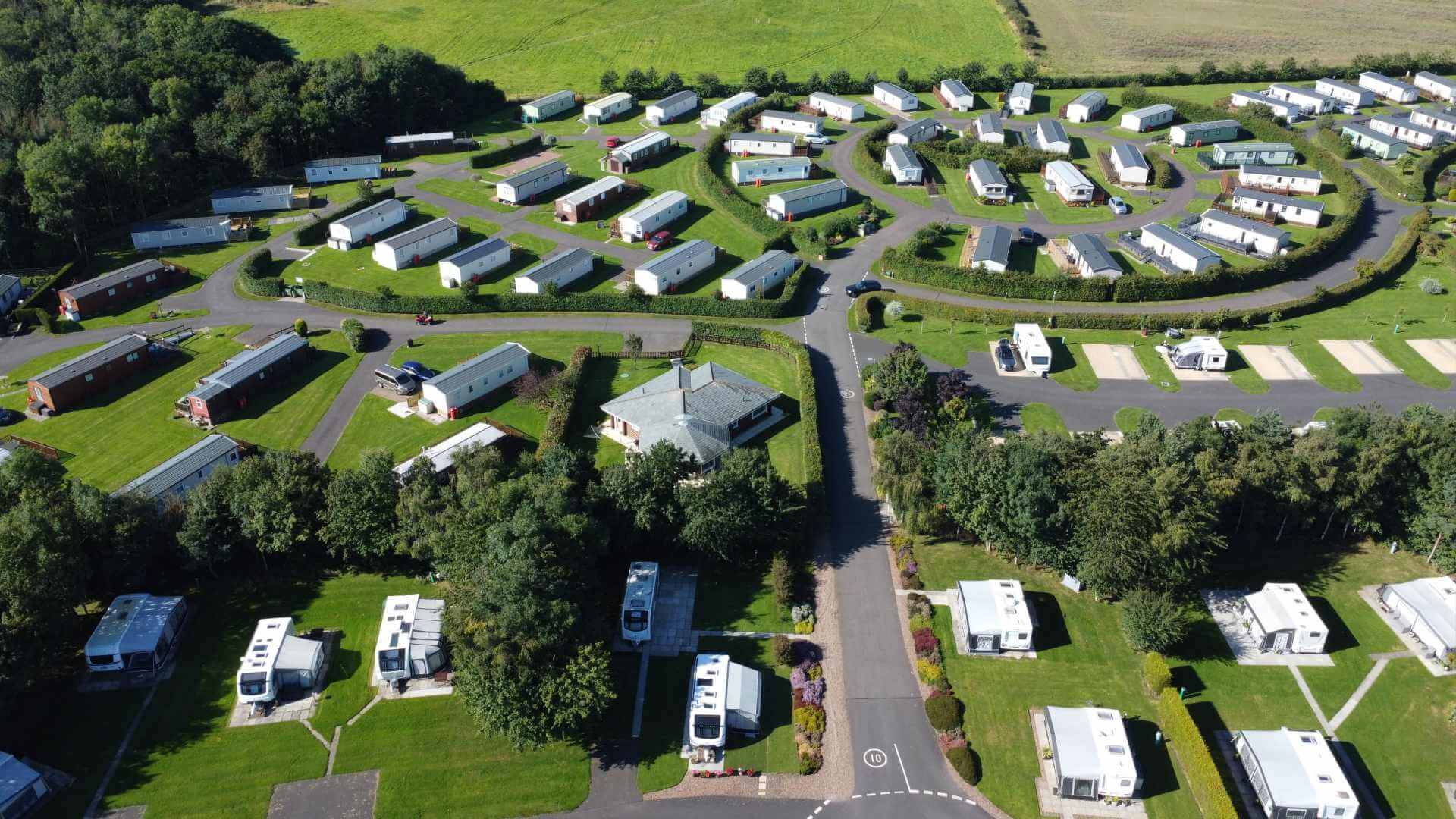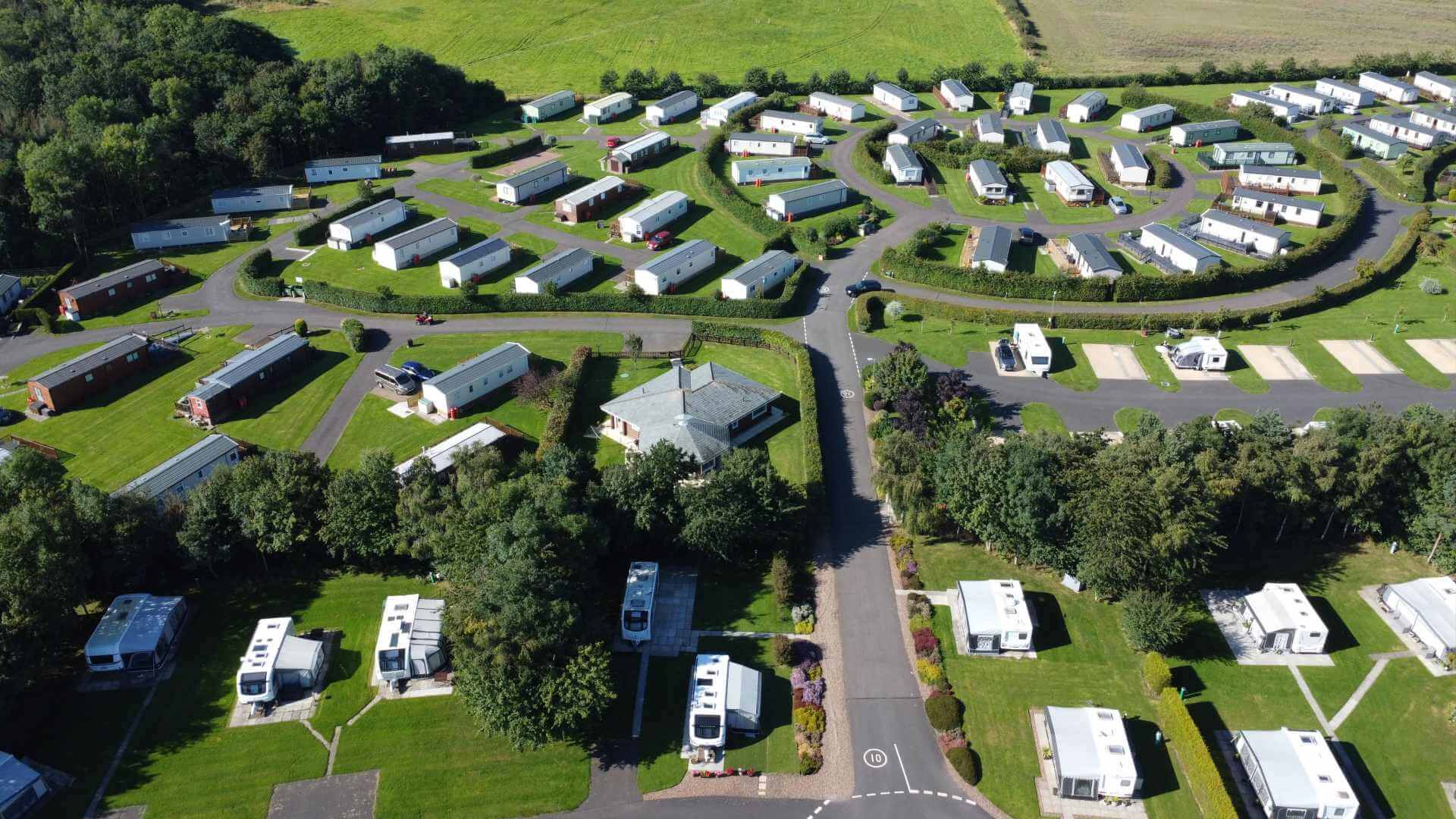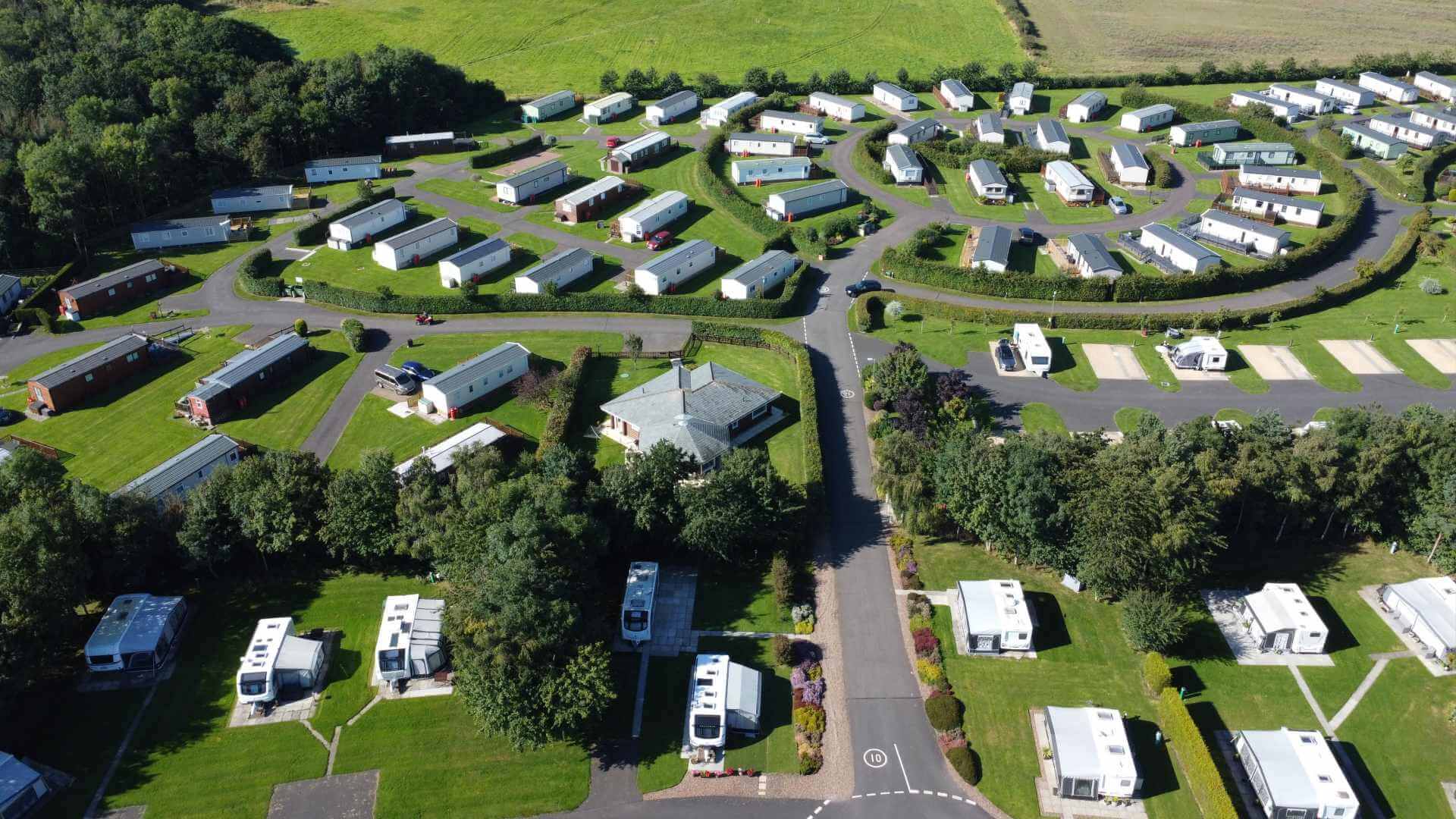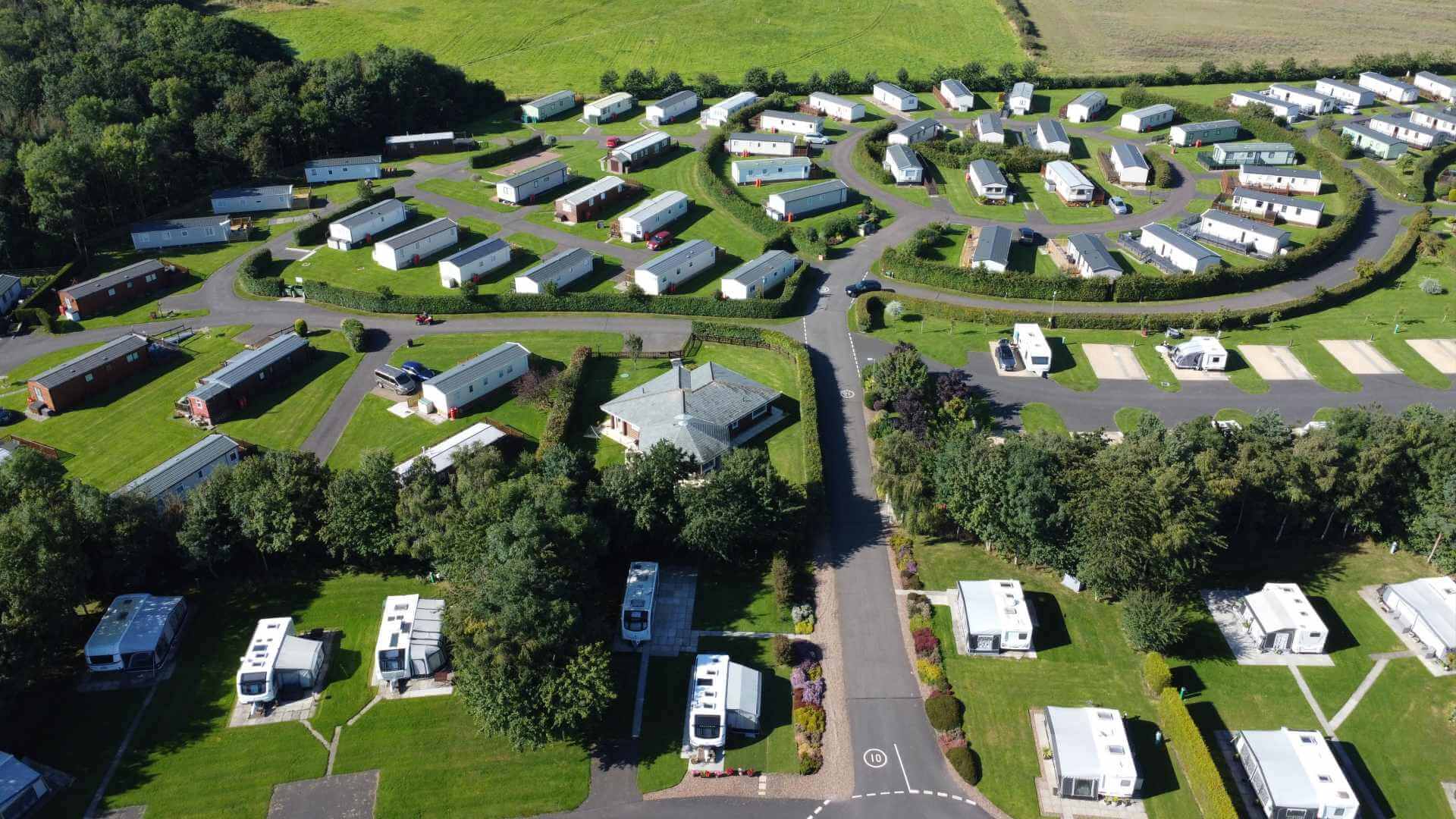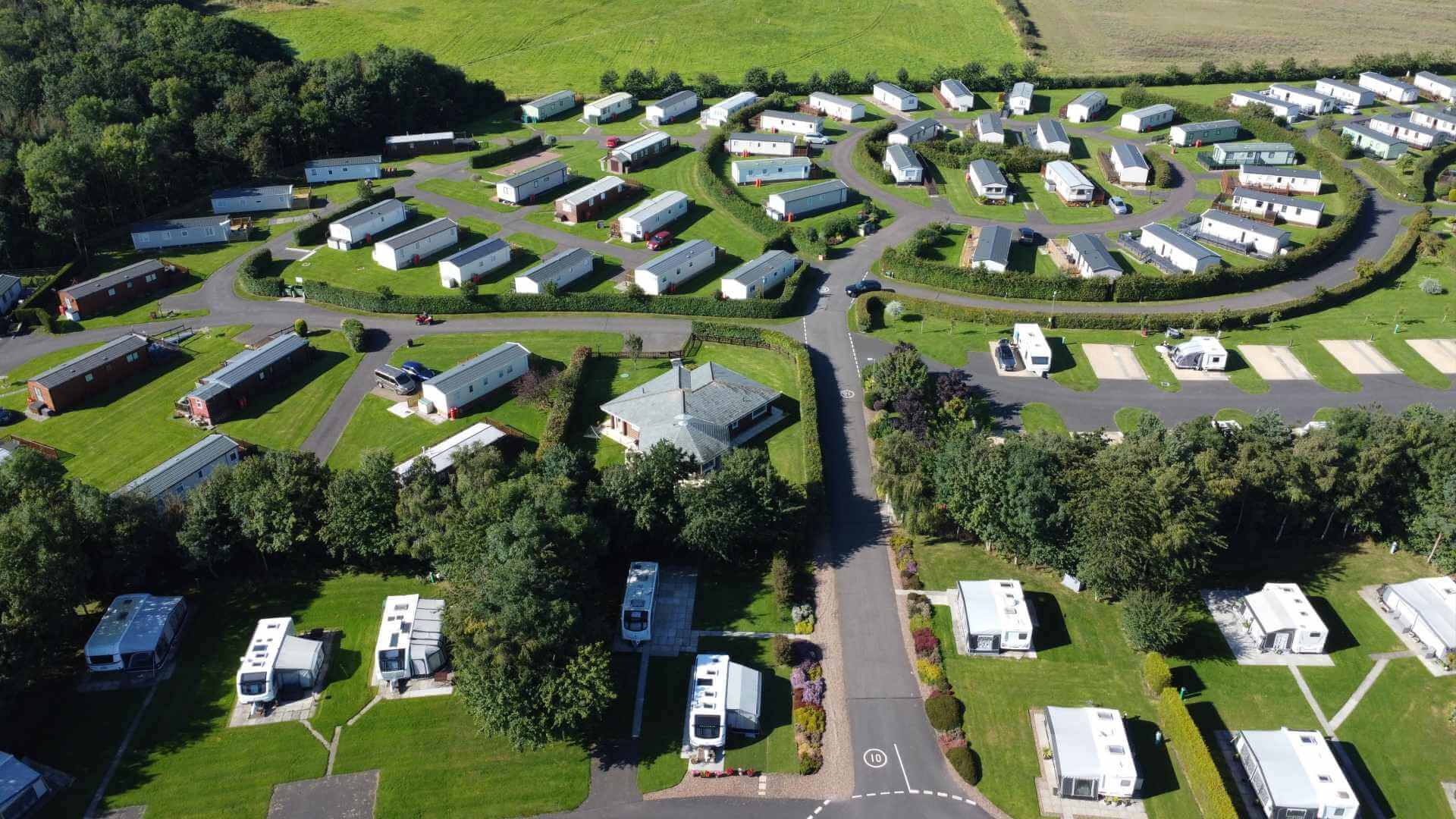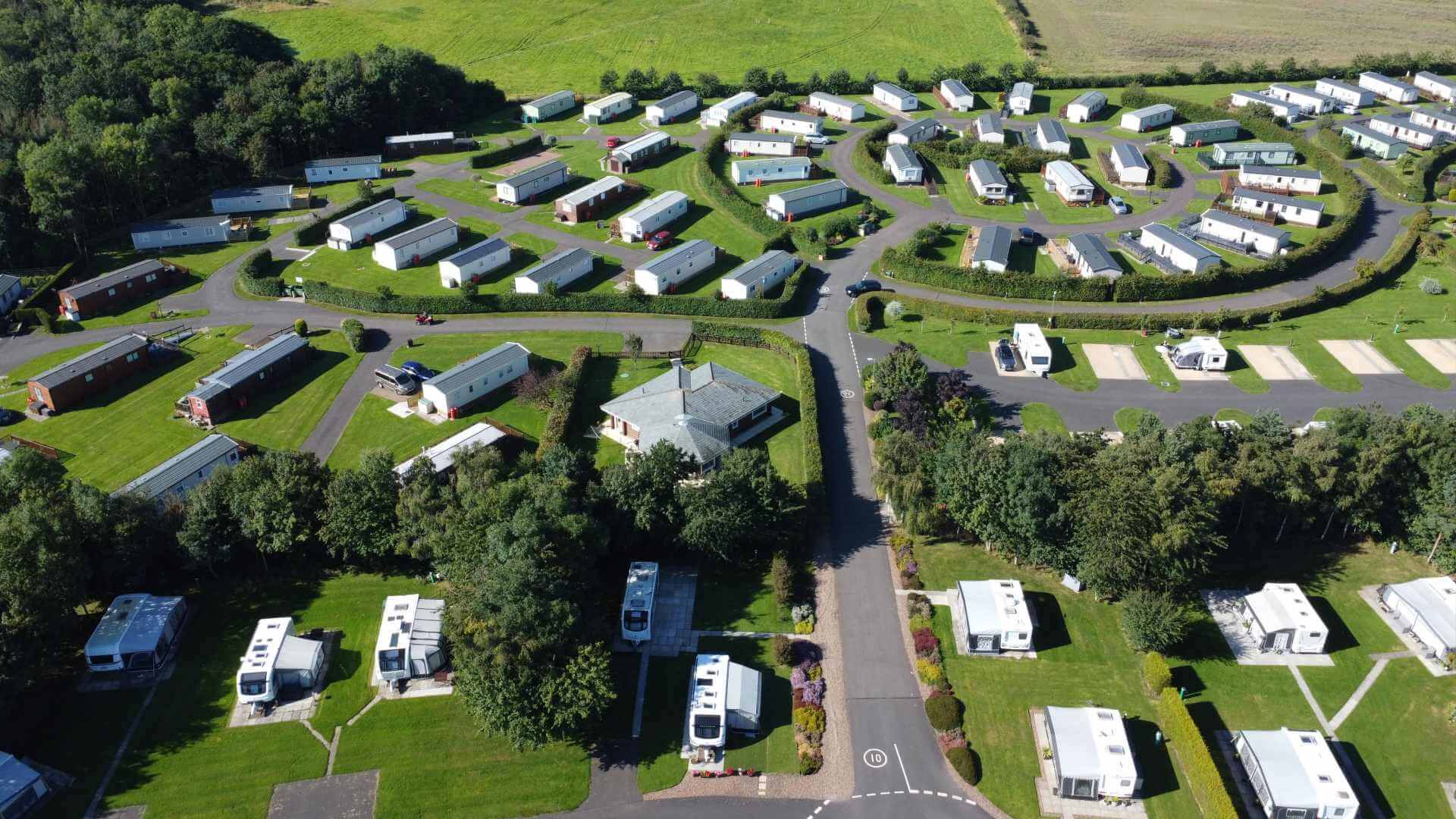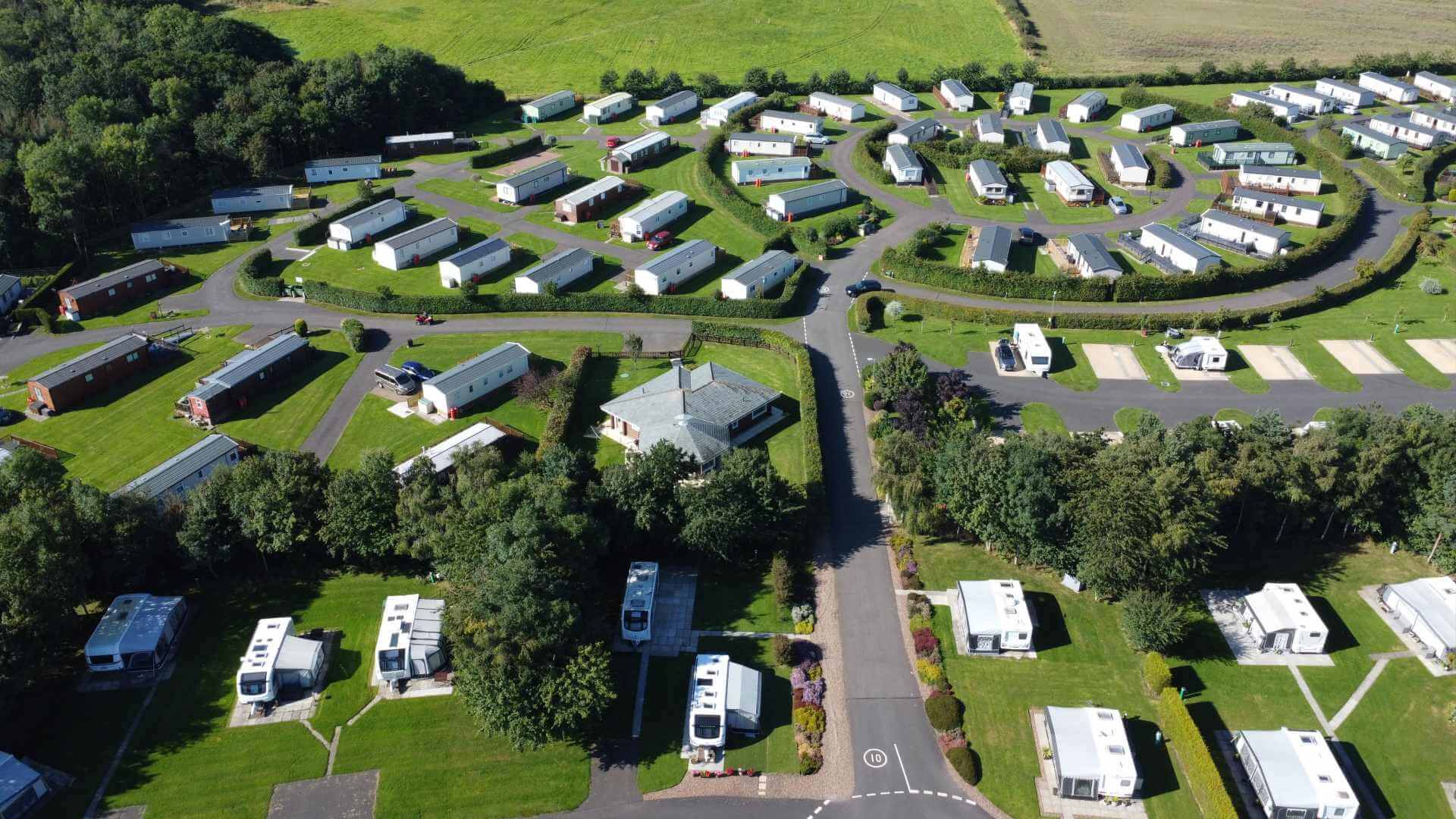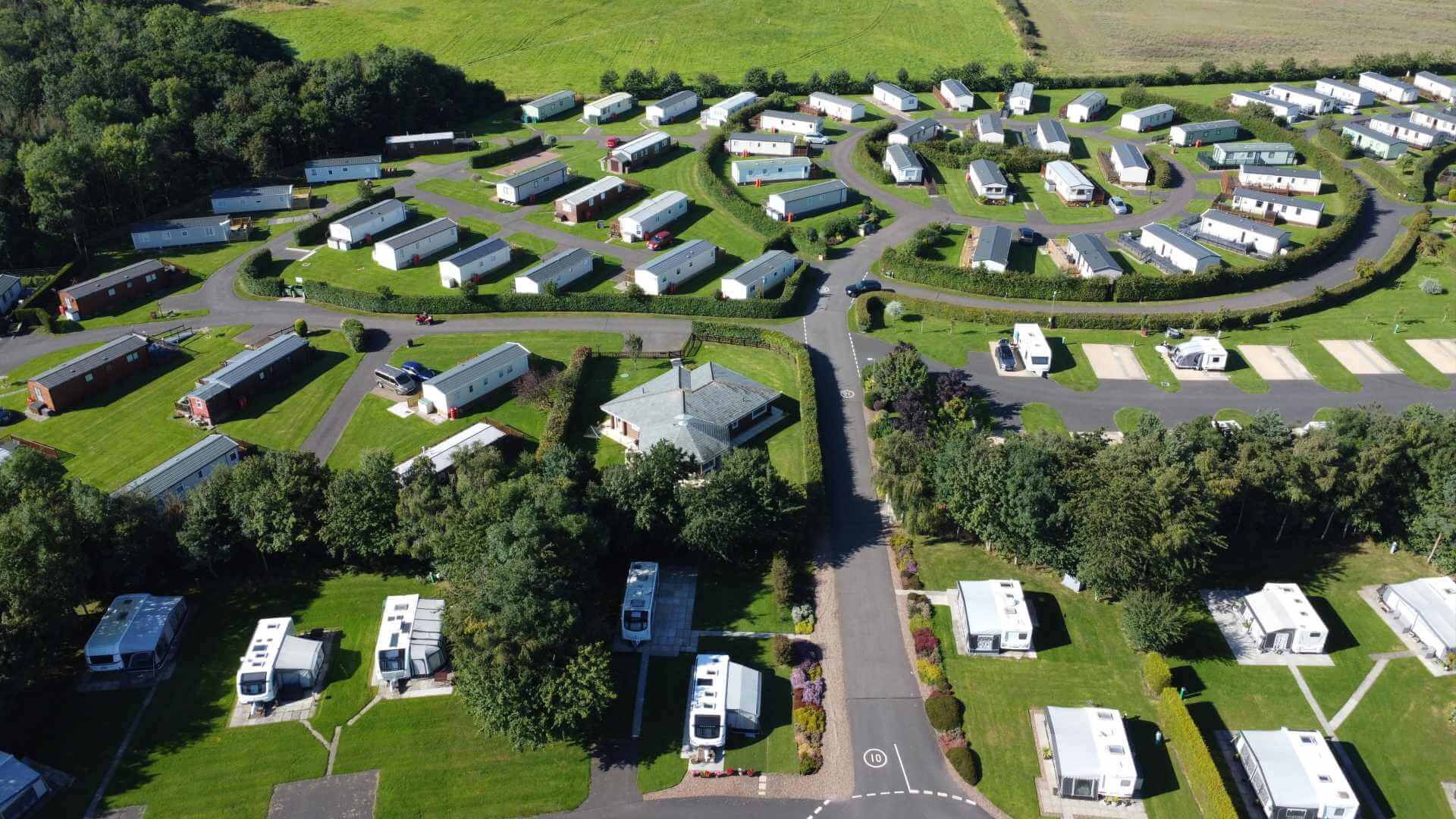Caravan parks and holiday parks face unique risks, with flooding being one of the most devastating threats to both business operations and …
Caravan Park Fire Safety Insurance: Protecting Your Holiday Business from Fire Risks
Fire safety is one of the most critical concerns for caravan park operators across the UK. With multiple accommodation units, electrical installations, gas supplies, and large numbers of visitors, caravan parks face unique fire risks that require specialized insurance coverage. Understanding these risks and securing appropriate fire safety insurance is essential for protecting your business, guests, and investment.
Understanding Fire Risks in Caravan Parks
Caravan parks present a complex fire risk environment that differs significantly from other hospitality businesses. The combination of temporary accommodation units, varied electrical systems, gas appliances, and high occupancy creates multiple potential ignition sources and rapid fire spread scenarios.
Static caravans and mobile homes contain combustible materials and often feature older electrical systems that may not meet current safety standards. Gas installations for heating and cooking add another layer of risk, particularly when maintenance schedules vary between different unit owners. The close proximity of units means that fire can spread rapidly from one caravan to another, potentially affecting entire sections of your park.
Touring pitches present different challenges, with visitors connecting their own caravans and motorhomes to your electrical supply points. These temporary connections, combined with varying standards of visitor equipment maintenance, create additional fire risks that park operators must manage and insure against.
Essential Fire Safety Insurance Coverage
Comprehensive fire safety insurance for caravan parks must address both property damage and business interruption risks. Property coverage should include all park buildings, static caravans owned by the park, electrical infrastructure, water systems, and recreational facilities. This coverage must account for the replacement cost of modern safety-compliant units, which may exceed the value of older caravans.
Business interruption insurance becomes particularly crucial following a fire incident. Caravan parks operate with seasonal peaks, and fire damage during busy periods can result in significant lost revenue. Coverage should include loss of pitch fees, static caravan rental income, and revenue from on-site facilities such as shops, restaurants, and entertainment venues.
Public liability coverage must address fire-related incidents that could affect guests or neighboring properties. This includes coverage for evacuation costs, temporary accommodation for displaced guests, and potential claims from visitors who suffer injury or property damage during fire incidents.
Specialized Coverage Considerations
Fire safety insurance for caravan parks requires several specialized coverage elements that standard commercial policies may not adequately address. Debris removal coverage becomes essential when dealing with multiple damaged units, as clearing and disposing of fire-damaged caravans involves significant costs and specialized contractors.
Loss of attraction coverage protects against reduced bookings following fire incidents, even after repairs are complete. Negative publicity from fire incidents can impact future bookings, and this coverage helps compensate for reduced occupancy rates during the recovery period.
Emergency services coverage should include costs associated with fire brigade attendance, particularly for incidents requiring extended emergency response or specialized equipment. Some policies also cover the cost of emergency accommodation for displaced guests and staff evacuation expenses.
Risk Assessment and Prevention
Insurance providers will conduct detailed risk assessments focusing on fire prevention measures, emergency procedures, and safety compliance. Parks with comprehensive fire safety systems, including smoke detection, emergency lighting, and clear evacuation routes, typically qualify for better insurance terms.
Regular electrical testing across all park installations demonstrates proactive risk management. This includes annual testing of supply points, inspection of static caravan electrical systems, and maintenance of emergency lighting systems. Documentation of these inspections provides evidence of due diligence to insurers.
Gas safety certificates for all park-owned units and clear policies for visitor gas installations help reduce fire risks. Many insurers require evidence of annual gas safety checks and clear procedures for managing visitor gas appliances.
Emergency Response Planning
Effective emergency response planning significantly impacts both fire safety and insurance costs. Parks must develop comprehensive evacuation procedures that account for guests with mobility issues, language barriers, and unfamiliarity with the site layout. Staff training in emergency procedures and regular evacuation drills demonstrate commitment to guest safety.
Fire detection systems must be appropriate for the outdoor environment and varying occupancy levels. This includes smoke detection in static caravans, heat detection in utility buildings, and emergency communication systems that can alert all guests quickly and effectively.
Coordination with local fire services improves emergency response effectiveness and may influence insurance premiums. Regular liaison meetings, site familiarization visits, and clear access arrangements for emergency vehicles all contribute to better fire safety outcomes.
Seasonal Risk Management
Caravan parks face varying fire risks throughout the operating season. Peak summer periods bring maximum occupancy but also increased fire risks from barbecues, outdoor cooking, and electrical demand. Insurance coverage must account for these seasonal variations in risk exposure.
Winter maintenance periods present different fire risks, particularly when carrying out electrical work, heating system maintenance, or refurbishment projects. Ensure your insurance covers fire risks associated with maintenance activities and contractor work.
Weather-related fire risks, such as drought conditions increasing grass fire risks or storm damage affecting electrical systems, require specific consideration in insurance planning. Climate change is increasing the frequency of extreme weather events that can impact fire safety.
Compliance and Regulatory Requirements
Fire safety insurance must align with regulatory requirements for caravan parks, including licensing conditions and safety standards. Local authority licensing often includes specific fire safety requirements that must be maintained to avoid insurance coverage issues.
Building regulations for caravan parks include fire safety provisions that affect insurance requirements. New installations or modifications may trigger updated safety requirements that impact insurance coverage and premiums.
Health and Safety Executive guidance on fire safety in caravan parks provides the framework for insurance risk assessment. Compliance with HSE recommendations demonstrates best practice and supports insurance claims in the event of incidents.
Claims Management and Recovery
Fire incidents in caravan parks can result in complex insurance claims involving multiple damaged units, infrastructure damage, and business interruption. Effective claims management requires detailed documentation of all park assets, including individual caravan specifications, infrastructure details, and revenue records.
Immediate post-incident procedures should include securing the site, documenting damage, and implementing temporary safety measures. Quick action to prevent further damage and begin the recovery process can significantly impact the final insurance settlement.
Working with specialist loss adjusters who understand caravan park operations helps ensure fair settlement of complex claims. These specialists can accurately assess damage to varied accommodation types and calculate appropriate business interruption compensation.
Cost Factors and Premium Management
Fire safety insurance premiums for caravan parks depend on numerous factors including park size, accommodation types, safety systems, and claims history. Parks with comprehensive fire prevention measures and strong safety records typically achieve better premium rates.
The age and condition of static caravans significantly impact insurance costs. Parks with newer, safety-compliant units generally pay lower premiums than those with older caravans that may not meet current safety standards.
Location factors including proximity to fire services, water supply availability, and local fire risk levels all influence premium calculations. Parks in areas with good emergency service coverage and low wildfire risk typically benefit from reduced premiums.
Choosing the Right Insurance Provider
Selecting an insurance provider with specific experience in caravan park risks ensures appropriate coverage and fair claims handling. Providers familiar with the industry understand the unique challenges and can offer tailored coverage solutions.
Look for insurers who offer risk management support, including safety inspections, compliance guidance, and loss prevention advice. This partnership approach helps improve safety standards while potentially reducing insurance costs.
Consider providers who offer flexible coverage options that can adapt to seasonal variations in risk exposure and business operations. This flexibility becomes particularly important for parks that operate seasonally or have varying accommodation types.
Future-Proofing Your Coverage
The caravan park industry continues to evolve, with new accommodation types, changing guest expectations, and updated safety standards. Your fire safety insurance must adapt to these changes to maintain adequate protection.
Emerging risks such as electric vehicle charging points, solar panel installations, and smart technology integration require consideration in insurance planning. These developments can create new fire risks that traditional policies may not adequately address.
Regular insurance reviews ensure your coverage remains appropriate as your business develops. Annual policy reviews should consider changes in accommodation stock, new facilities, updated safety systems, and evolving regulatory requirements.
Conclusion
Fire safety insurance for caravan parks requires specialized knowledge and comprehensive coverage that addresses the unique risks of this hospitality sector. From protecting diverse accommodation types to managing seasonal business interruption risks, the right insurance strategy provides essential protection for your investment and guests.
Effective fire safety insurance goes beyond basic property coverage to include business interruption protection, specialized risk coverage, and support for regulatory compliance. By working with experienced insurers and maintaining strong fire prevention measures, caravan park operators can secure appropriate protection while managing insurance costs effectively.
The investment in comprehensive fire safety insurance provides peace of mind and financial protection that allows you to focus on providing excellent holiday experiences for your guests while building a sustainable and profitable business.


 0330 127 2333
0330 127 2333
